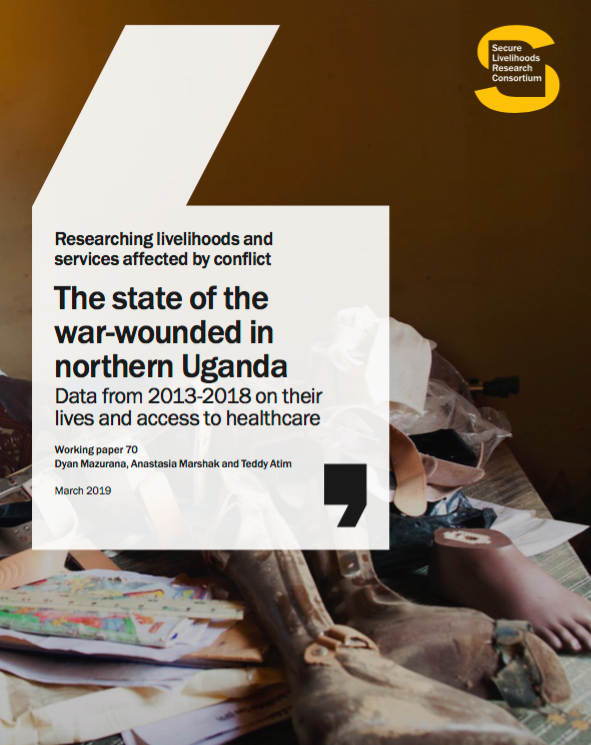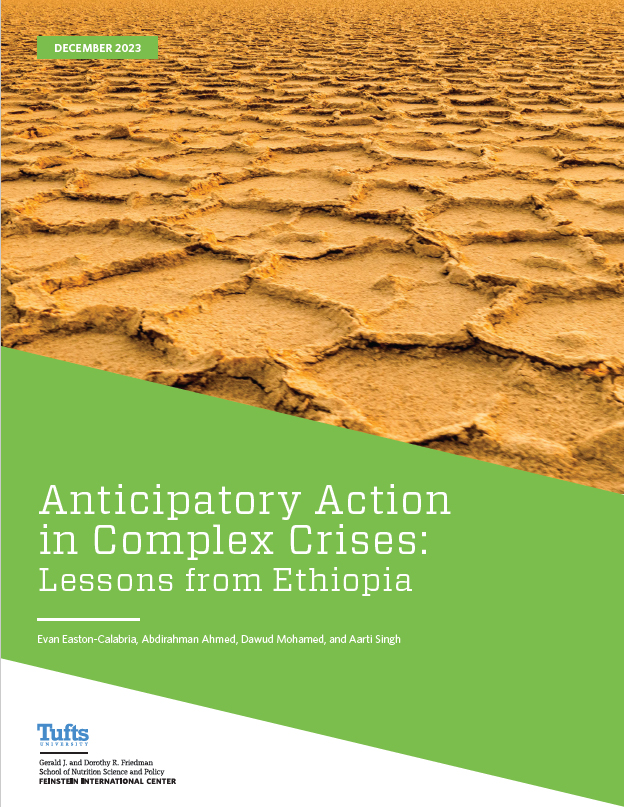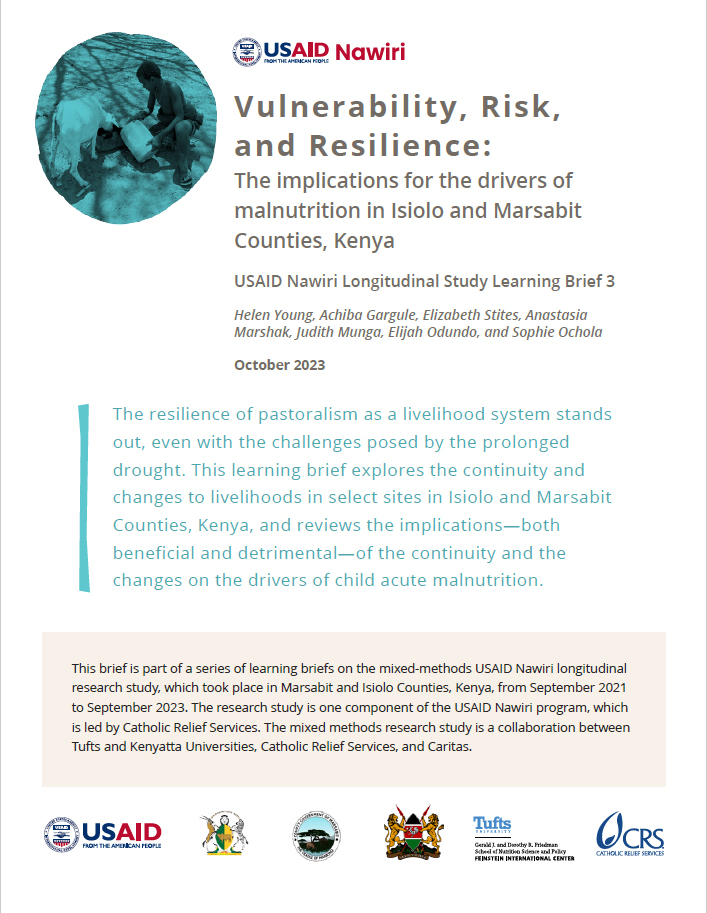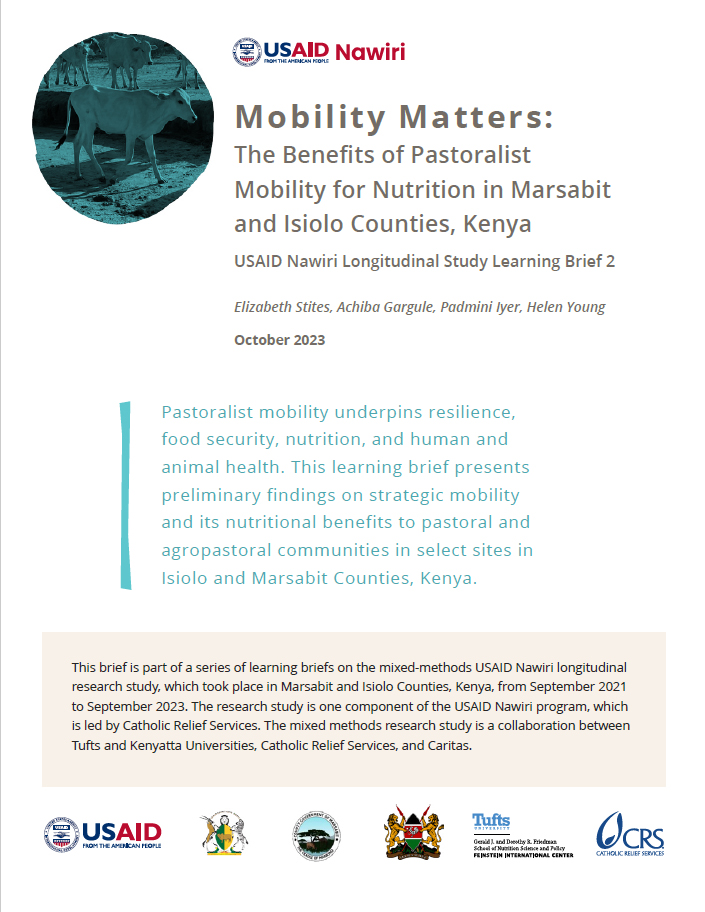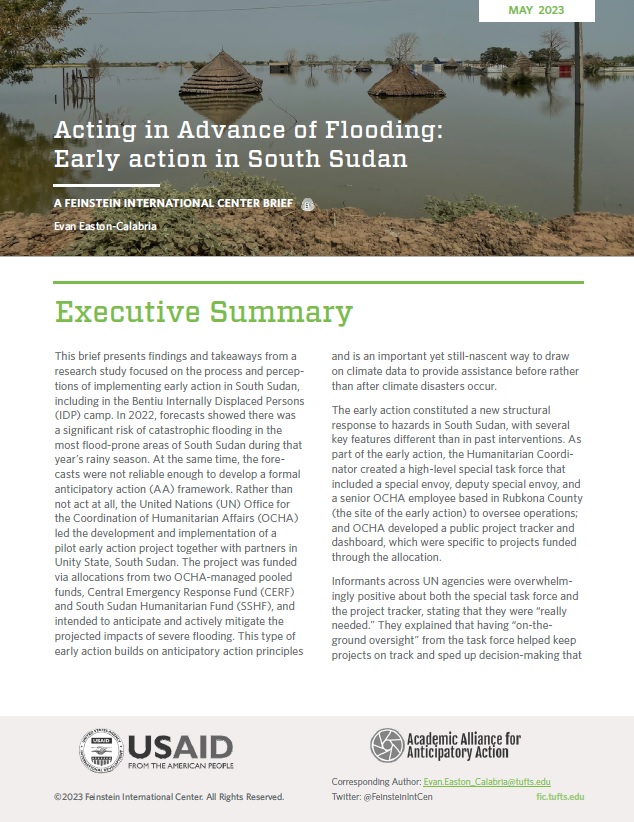Few large-scale, structured surveys have been conducted on the prevalence of alleged war crimes or crimes against humanity committed by warring parties against civilians and how this relates to disability.
Using data from a panel survey carried out in 2013, 2015, and 2018 that is representative of all of Acholi and Lango sub-regions in northern Uganda, this working paper reports the prevalence of alleged war crimes or crimes against humanity for individuals and households; their association with disability; and the resulting effects over time on people’s lives in terms of food security, wealth, access to basic services, and healthcare.
The study contributes to an understanding of people who have experienced alleged war crimes or crimes against humanity that affect them physically and psychologically; the relationship between experience of these alleged crimes and their experience of disability; the effects of these crimes on their wealth, food security, and access to livelihood and social protection services; the effects of these crimes on their access to basic and therapeutic healthcare; and a better understanding of the key obstacles faced by victims of these alleged crimes when they are unable to receive basic and therapeutic healthcare.
The Secure Livelihoods Research Consortium (SLRC) is a six-year, eight-country research study, led by the Overseas Development Institute (ODI) in London. SLRC investigates livelihoods, access to basic services, and social protection in fragile and conflict-affected situations. The UK Department for International Development (DfID), Irish Aid, and the European Community (EC) funded the research. The Feinstein International Center leads SLRC research in South Sudan and Uganda in addition to its participation in the Sierra Leone research.

